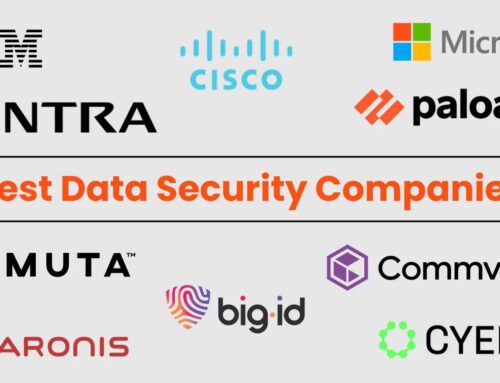
Beware of North Korean Fake Job Platform Targeting U.S. Based AI-Developers
North Korea’s “Contagious Interview”: A Sophisticated Job Scam Targeting U.S. AI Developers
The digital landscape is a battleground, and even the pursuit of a new career can expose professionals to severe cybersecurity risks. A concerning development has emerged from North Korea, with nation-state actors now employing elaborate fake job platforms to ensnare top U.S.-based artificial intelligence developers, software engineers, and cryptocurrency specialists. This isn’t just about financial fraud; it’s a strategic intelligence-gathering operation, and understanding its mechanics is paramount for protecting your career and your company’s intellectual property.
Understanding the “Contagious Interview” Operation
Security researchers at Validin have meticulously uncovered a new variant of a persistent threat they’ve dubbed the “Contagious Interview” operation. This campaign leverages highly sophisticated social engineering tactics masquerading as legitimate recruitment processes. North Korean threat actors, often operating under aliases, create convincing fake job listings and even entire dummy company websites designed to appear indistinguishable from authentic tech firms. Their primary targets are highly skilled professionals in the AI and cryptocurrency sectors within the United States.
The goal is not merely to steal personal information, though that is often a byproduct. Instead, these operations are designed to establish trust with targets, potentially leading to the deployment of malware during the “interview” process or even to compromise corporate networks if the victim uses their work device. The allure of a dream job, especially in competitive fields like AI, makes these campaigns particularly effective.
Tactics of the North Korean Threat Actors
These sophisticated scams depend on a multi-stage approach, each designed to build credibility and ultimately compromise the target:
- Elaborate Fake Job Platforms: The attackers construct seemingly legitimate company websites, complete with fictional employee profiles, polished mission statements, and attractive job descriptions for high-paying roles. These platforms are often meticulously crafted to mimic real tech companies.
- Targeted Outreach: They identify and approach high-value targets, primarily AI developers, software engineers, and crypto experts, through professional networking sites or direct emails, offering seemingly ideal positions.
- The “Interview” Phase: The “Contagious Interview” truly begins when the candidate enters the interview process. This often involves multiple stages, from initial screenings to technical assessments. During these stages, the attackers may:
- Request the installation of “proprietary” software for coding tests or collaboration, which secretly contains malware.
- Ask for seemingly innocuous personal or professional details that can be used for further social engineering or identity theft.
- Attempt to conduct interviews using compromised video conferencing platforms or custom tools that facilitate data exfiltration.
- Malware Deployment: The ultimate objective is often to deploy sophisticated malware onto the victim’s machine. This malware can range from remote access Trojans (RATs) to keyloggers or information stealers, giving the North Korean actors a backdoor into the victim’s digital life and potentially their employer’s network.
Remediation Actions and Protective Measures for Professionals
Protecting yourself from such advanced persistent threats requires vigilance and a proactive security posture. If you are an AI developer, software engineer, or cryptocurrency professional, consider these essential steps:
- Verify Employment Opportunities Independently: Always cross-reference job offers directly with the official company website and legitimate recruitment portals. Do not rely solely on links provided in suspicious emails or messaging platforms. Look for discrepancies in domain names, email addresses, and company branding.
- Scrutinize Software Installation Requests: Be extremely wary of any request to download or install proprietary software, browser extensions, or “secure collaboration tools” during an interview or recruitment process. Legitimate companies rarely require this before a formal offer is extended. If in doubt, independently verify the software’s legitimacy and scan it thoroughly.
- Conduct Due Diligence on Recruiters: Research the recruiter and the hiring manager on professional networking sites. Look for established profiles, mutual connections, and consistent professional histories. Be suspicious of newly created profiles or those with sparse information.
- Use Dedicated Job Search Environments: If possible, conduct your job search activities, especially technical tests and interactions with unknown entities, on a separate, sandboxed, or virtualized environment. This isolates potential threats from your primary work and personal systems.
- Strong Password Hygiene and MFA: Ensure all your online accounts, especially professional and email accounts, use strong, unique passwords and have multi-factor authentication (MFA) enabled.
- Learn About Common TTPs: Familiarize yourself with the common tactics, techniques, and procedures (TTPs) used by North Korean threat groups like the Lazarus Group or APT38. Understanding their methods can help you identify suspicious activity.
- Report Suspicious Activity: If you believe you have encountered a sophisticated job scam, report it to the FBI’s Internet Crime Complaint Center (IC3) and relevant cybersecurity authorities. Your report can help protect others.
Tools for Detecting and Preventing Phishing/Malware
| Tool Name | Purpose | Link |
|---|---|---|
| VirusTotal | File/URL analysis for malware detection | https://www.virustotal.com/ |
| MXToolbox | Email header analysis, domain lookups (useful for verifying sender legitimacy) | https://mxtoolbox.com/ |
| PhishTank | Public database of verified phishing data (useful for checking suspicious URLs) | https://www.phishtank.com/ |
| URLScan.io | Website scanner for suspicious URLs and analysis | https://urlscan.io/ |
Conclusion: Stay Vigilant in a Targeted Economic Warfare
The “Contagious Interview” campaign highlights a growing trend: nation-state actors are increasingly targeting individuals, not just infrastructure, as a means of economic espionage and intellectual property theft. For U.S.-based AI developers, software engineers, and cryptocurrency professionals, the risk of encountering a North Korean-backed fake job platform is real and significant. By exercising extreme caution, verifying every step of the recruitment process, and maintaining a robust cybersecurity posture, you can defend against these sophisticated and persistent threats. Your expertise is valuable, and it’s imperative to protect it from those who seek to exploit it.





